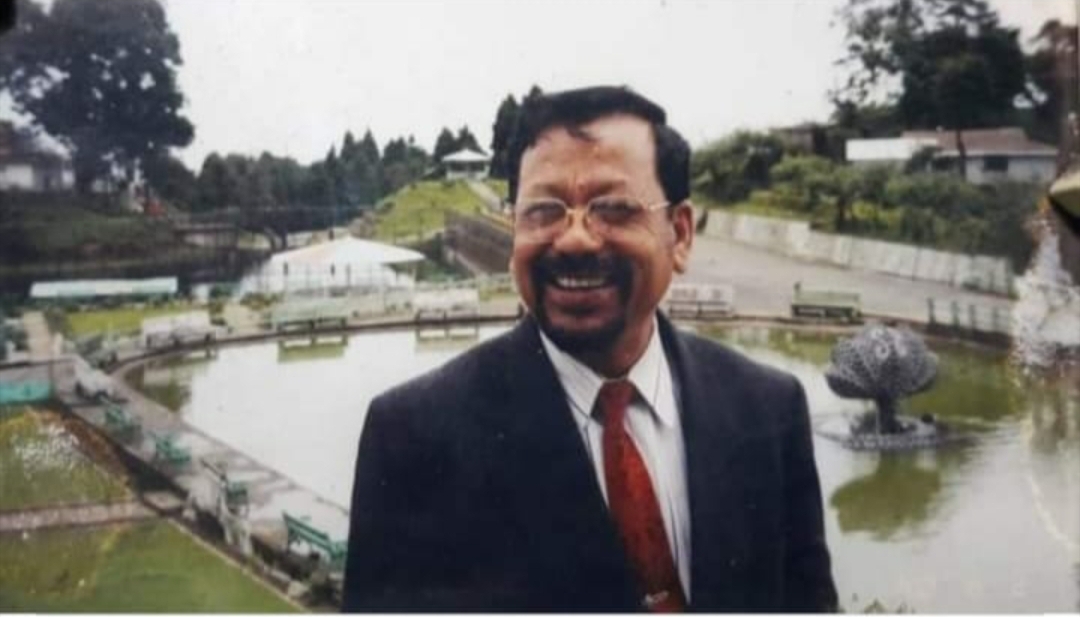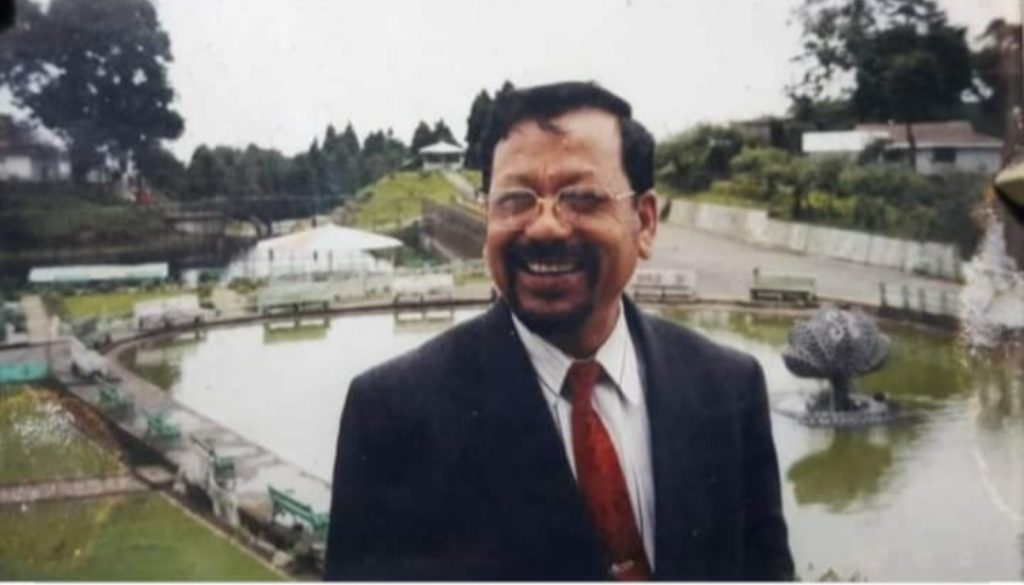
Yesterday night stood to be one of those unfortunate times where we crawl ourselves into the bed with an unspoken amount of grief in the heart. The news about the demise of Sir SP Parasar got to our knowledge. He left us all for a better place on 24th September 2020.
There are many good things about growing up, but unfortunately, there are as double the things about the same that fill you with a sense of regret. One such thing is to notice your own world fading out before your eyes. The school that we proudly feel to be ours slowly starts drawing apart from us. The teachers who nurtured us through the years start retiring one by one and new faces start taking their place. We begin to realise that our love, belongingness and memories of the school are all woven tightly around our teachers and friends. Friends – most we lose through the years. Teachers – we never forget. The first thing we ever ask to any student of our alma mater that we meet is if so-and-so teachers still teach them.
And the worst thing afterall is of course getting to hear about our teachers leaving us. Its one time when we care to steal sometime from our busy or not so busy lives, sit down and look back. Its a strange feeling when the memories, which are else covered in dust, wake up and rush themselves to your eyes. Days and years start sliding down your memories. Realisation dawns upon you. Yes, it wasn’t just yesterday that you were at school with those teachers, no matter how fresh those memories may feel.
The intimation about Sir SP Parasar’s death stands to be a painful nail to my memories of the school. Mahasay, as we would fondly call him, and as he loved to be called, was one of the tallest personalities around the school. He would be a Nepali teacher to the higher classes in the school, and perhaps the only person I have met who wouldn’t mix a word of English to his speech, even when he would be generally talking. So much so that the term “Sir” could never catch his appeal. He would love to be called Mahasay, and so would we oblige. While we always addressed our long borne practice of greeting teachers saying “Goodmorning Sir” and “Goodafternoon Sir”, we took an exception in his case. We would gently fold our hands whenever we saw him, bow our head and say “Namaskar Mahasay”. He would give a subtle smile, place his hand on our head and mumble some blessings on us that would usually end with a “huh”. The expression “huh” would actually serve as a persistent opening and closure to all his sentences.
Through almost a decade that I spent at St. Robert’s School, I never heard even one word spoken about him by any faculty member, or against him by any student. He had his own simple existence, where he would be respected by all. His belief in his duty was as strong as his faith in God. Though, there are few things about him that anyone who had been a part of his class will never forget.

My own first encounter with him took place when I reached Class 10, where he would teach Nepali. He had his personality – completely different than others, and he had his own way of doing things as well. He would want us to speak good Nepali, recite poems in rhythm. “लय मा भन्, लय मा।” – he would say when he would ask us to recite any poem. Our precarious attempt to it would often fail. But that wouldn’t get him on his nerves as much as seeing someone smile or laugh would. As hard as we would try to refrain from smiling or laughing, we would often fail. He would stare for few moments and then point his stick on the person smiling (or laughing), shoot it up like the recoil of a gun, and say, “तॅ उठ्“. The person would stand, already knowing that a very familiar question was about to be thrown at him, and so would it come – “किन हाॅस्छस् ?”, he would ask. An apologetic face would end the business there, but one more smile or laughter while on the interrogation, a considerably painful punishment would follow.
His punishment would also follow a unique modus operandi. The moment that Mahasay would say “तॅ यहा आ“, the culprit would know of his fate, or rather of his due interaction with his lethal weapon – the shiny long stick. His words would tear the absolute silence of the moment as he said – “कान समात”, wanting the person to hold his ears while facing the board. Not obliging to the instruction would further enrage him, he would say again, with a firmer and louder voice – “म भन्छू कान समात।” By this time, the culprit realised that there wasn’t any escape and he would submit himself to the situation. The moment his hands would touch his ears, the stick would launch and engage to its target and strike in full blow. One hit would bring all Christmas and Diwali to the bums.
He had a habit of walking around the class while we would read the lessons assigned by him. A part of habit was to stand by one of us and poke us with his stick while mumbling for no reason. We would only understand the occasional “huh” amidst his mumbles. The poking would cause tickles and though we would not want to, we would end up smiling or giggling. He would again say – “kina muskurawchas huh?? Tero muskaan luka.”
It might be guilty of us to find happiness while shuffling through our memories of them at such times of mourning and grief. But perhaps this happiness is what they have left in us of them. Perhaps, while making us memorise a part of Ramayana in perfect rythm as per the “छन्द“, he also might have taught us to be happy whenever we thought about him. It would again be a lie that I would remember to think about him through the time, but I would for sure not forget about him, and I shall always be happy everytime I think about him.
Rest in peace dear Mahashay.

Be the first to comment on "OBITUARY: We mourn the demise of Sir SP Parasar, our Mahashay"